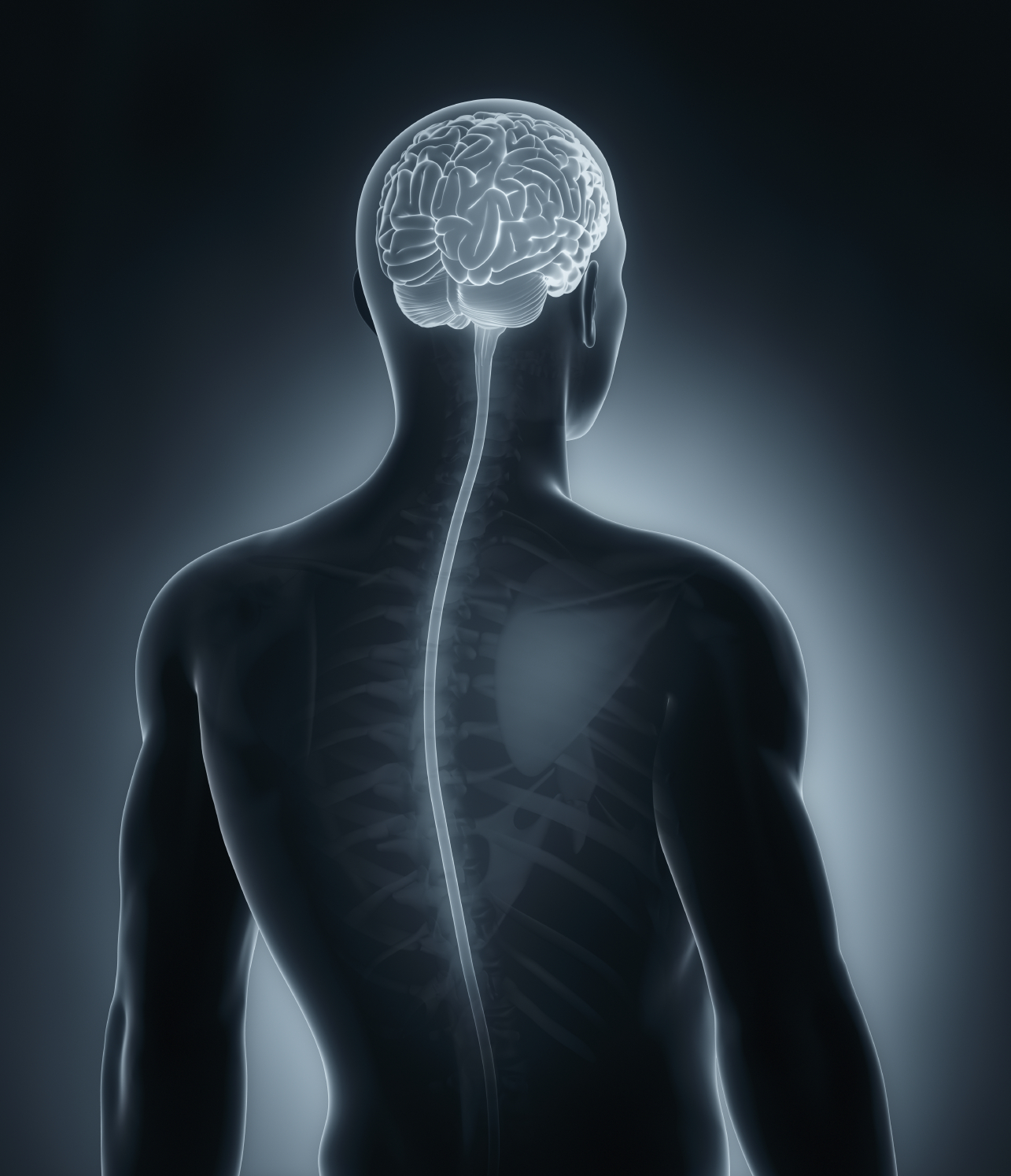Media Coverage
The work done by Northwestern University Feinberg School of Medicine faculty members (and even some students) is regularly highlighted in newspapers, online media outlets and more. Below you’ll find links to articles and videos of Feinberg in the news.
-
Fox 32 Chicago
–
Chicago hospital marks major organ transplant milestone
Northwestern Medicine is celebrating a major milestone for its surgical program. The hospital recently completed their 10,000th abdominal organ transplant procedure. What it means for the hospital is that Northwestern has become the first health system in Illinois to achieve that milestone. Northwestern’s organ transplant program dates all the way back to 1964. Since then, they’ve done more than 6,500 kidney transplants, more than 2,600 liver transplants and more than 850 pancreas transplants. Northwestern said going forward, it’s focused on clinical trials and research to continue supporting as many patients as possible.
-
TIME
–
Is ‘Mommy Brain’ Real? What Happens to Your Mind and Body When You Become a Mom
Most people are familiar with the term “mommy brain,” a phrase that describes the brain fog and forgetfulness that many pregnant women and new moms experience. But it turns out there’s way more going on than just forgetting the name of your college professor, and it’s something called matrescence. Coined by medical anthropologist Dana Raphael in 1973, matrescence is, quite simply, the process of becoming a mother. It’s an immense physical, psychological, emotional, and social shift—and one that’s far more intense than most people realize. More research on matrescence is being done each year. Historically, perinatal mental-health researchers thought it was important to study moms for the sake of their babies, says Sheehan Fisher, PhD, a perinatal clinical psychologist at Northwestern Medicine. “Now, we’ve shifted so that moms’ mental health matters in and of itself.” More awareness about the changes women go through during this time can be beneficial on both an individual and societal level. Perinatal mental health conditions are common—one in five women experience one during this vulnerable time—plus the majority of new moms in the U.S. still don’t have access to paid maternity leave.
-
HealthDay
–
Cancer & COVID Drove Him to Double-Lung Transplant
Chicago resident Arthur “Art” Gillespie fell ill in early March 2020 with COVID, after he and his father went to visit an uncle in a nursing facility. “I was hospitalized for 12 days with a high fever and cough, and during that time, they were taking scans of my lungs, which showed stage 1 lung cancer on my right lung,” Gillespie, 56, recalled in a news release. “I had no symptoms of lung cancer, so in a way – because of COVID – we were able to catch the cancer early.” Gillespie had one lung damaged by cancer and the other damaged by COVID, ultimately leaving him with just one last chance for survival. Doctors at Northwestern Medicine in Chicago saved his life through a double-lung transplant that took place in January – the first such procedure involving two lungs damaged by two different ailments, they said. “When Arthur first came to see us in September 2023, even though he looked physically strong, he could barely speak a single sentence without getting short of breath or take a few steps before having to sit down,” Ankit Bharat, MD, chief of thoracic surgery at Northwestern Medicine, said in a news release. “The pressure inside the lungs had also increased to a point that it was causing heart failure, and his only option for survival was a double-lung transplant,” added Bharat, who performed Gillespie’s surgery. “Despite being told ‘no’ by other doctors, Arthur had the courage and determination to keep searching for answers,” Bharat said. “I feel honored that we were able to help him since he spent so many years helping the community as a police captain.”
-
WebMD
–
Experts Watching Bird Flu Carefully in Case It Takes Off
So far, the unexpected jump of bird flu to cattle has not emerged as a new human flu pandemic. Yes, a dairy worker got pink eye this year after being infected, but a larger threat to all of us has not yet materialized. “Just don’t kiss or hug the animals,” recommended Tina Tan, MD, who agreed the risk to U.S. population from bird flu remains low at this point. Tan is a professor of pediatrics at Northwestern University Feinberg School of Medicine, also in Chicago. Both infectious disease experts spoke during a news briefing sponsored by the Infectious Diseases Society of America (IDSA). If the virus does jump to people, children may be at higher risk. “As you know, kids are very different from adults in that they’re much more likely to hug and kiss an animal,” said Tan, who is also president-elect of the IDSA. The Ann & Robert H. Lurie Children’s Hospital of Chicago, where Tan works, is ready if H5N1 starts to cause significant infections in children. “We’re going to treat it very much like pandemic influenza. We have protocols in place for pandemic influenza and for COVID, which can be adjusted toward H5N1 if that were to become a real problem.”
-
CNN
–
How to survive sleeping with a sleep talker
Do you or a loved one talk in your sleep? It’s a common sleep issue for many, experts say. About 50% of children will talk in their sleep — and typically outgrow it — while only about 5% of adults are nighttime blabbermouths, according to the American Academy of Sleep Medicine. However, about 60% to 65% of adults will experience at least one episode of nighttime speech during their lifetime, the academy said. Sleep talking, or somniloquy, can be connected to mental health issues such as post-traumatic stress disorder (PTSD), depression and anxiety. A white noise generator or loud fan is a great defense, said Jennifer Mundt, PhD, assistant professor of sleep medicine, psychiatry and behavioral sciences at Northwestern University Feinberg School of Medicine in Chicago. “Earplugs or comfortable noise-canceling headphones may also help,” she said. Earplugs come in several forms: expandable foam, pre-molded versions and custom molded, which are created to precisely fit the shape and size of the ear canal. For some people, something as benign as being on vacation or sleeping somewhere new can cause an episode, Mundt said. “At these times your brain is a little more vigilant because you’re in a new environment, and that means you’re more likely to have this partial awakening, where one part of the brain is awake and the other part is asleep,” Mundt said.
-
Chicago Tribune
–
New COVID ‘FLiRT’ variants are spreading nationwide. Chicago health experts urge up to date vaccination.
A new family of COVID variants nicknamed “FLiRT” is spreading across the country, as vaccination rates in Chicago — as well as nationwide — remain concerningly low for some public health experts. While symptoms and severity seem to be about the same as previous COVID strains, the new FLiRT variants appear to be more transmissible, said infectious disease expert Robert Murphy, MD, . “A new, more contagious variant is out there,” said Murphy, executive director of Northwestern University’s Institute for Global Health and a professor of infectious diseases at the Feinberg School of Medicine. “COVID-19 is still with us, and compared to flu and RSV, COVID-19 can cause significant problems off-season.” Murphy urged the public to get up to date on COVID shots, particularly individuals who are at higher risk for severe complications from the virus. While much of the population has some immunity from vaccination or previous COVID infections, Murphy noted that “with COVID-19, immunity wanes over time.”
-
New York Times
–
But How Does the Worm Get in Your Brain?
Humans are typically exposed to tapeworms through raw or undercooked food or through food contaminated with feces. “A lot of these things are transmitted to humans through feces,” said Edith L. Graham, MD, a neurologist at Northwestern Medicine and assistant professor of neurology and hospital neurology. It can take months, or even years, for people to show signs of infection. Symptoms vary based on how many cysts develop and where they are. (Cysts can form in the eyes, muscles and spinal cord.) Generally, though, people with neurocysticercosis experience headaches and seizures, and they sometimes feel confused, struggle to pay attention and have issues with balance. The condition can be fatal. One of the most common parasitic brain infections is toxoplasmosis. The parasite that causes toxoplasmosis can linger in humans for years — potentially, for someone’s entire life — but most people will not develop symptoms. In the United States, severe infections from brain parasites are rare, but in other parts of the world they’re more common. Many of these are preventable, however. Washing your hands thoroughly before eating or preparing food, cooking food properly and ensuring the water you’re drinking is clean are all ways to reduce the risk.
-
Fox 32 Chicago
–
Self-driving wheelchairs could soon be reality, inspiring independence for users
Power wheelchairs are being fitted with LUCI Mobility sensors and can analyze safety information. Robotics developed by Brenna Argall, PhD, a research scientist at Shirley Ryan and an associate professor at Northwestern University, is being added as well. “This is a huge step for power wheelchairs,” said Argall. The LUCI technology automatically stops the power wheelchair at a curb, a step, or a drop-off. Argall’s robotics will help users navigate around obstacles. “This kind of technology exists in other parts of society,” said Argall. “So even just on our regular, not even driverless cars, you have lane assist, brake assist, parking assist. None of that existed in power wheelchairs until LUCI entered the market.” Argall continued, “Our dream is that it’s a standard part of being fitted for a power wheelchair. I think you’ll see insurance companies start taking it on more and more as they see it prevents accidents and makes people safer. It provides a lot of peace of mind and that translates over into more independence. People are more confident and able to be out on their own.”
-
New York Times
–
The Loneliness Curve
In an age when participation in community organizations, clubs and religious groups has declined, and more social interaction is happening online instead of in person, some young people are reporting levels of loneliness that, in past decades, were typically associated with older adults. It’s one of the many reasons loneliness has become a problem at both the beginning and end of our life span. In a study published last Tuesday in the journal Psychological Science, researchers found that loneliness follows a U-shaped curve: Starting from young adulthood, self-reported loneliness tends to decline as people approach midlife only to rise again after the age of 60, becoming especially pronounced by around age 80. While anyone can experience loneliness, including middle-aged adults, people in midlife may feel more socially connected than other age groups because they are often interacting with co-workers, a spouse, children and others in their community — and these relationships may feel stable and satisfying, said Eileen K. Graham, PhD, an associate professor of medical social sciences at the Northwestern University Feinberg School of Medicine and the lead author of the study. Dr. Graham and other experts on social connection said there were small steps we could take at any age to cultivate a sense of belonging and social connection. Research has shown that poor health, living alone and having fewer close family and friends account for the increase in loneliness after about age 75. But isolation isn’t the only thing that contributes to loneliness — in people both young and old, loneliness stems from a disconnect between what you want or expect from your relationships and what those relationships are providing.
-
New York Times
–
Are We Talking Too Much About Mental Health?
In recent years, mental health has become a central subject in childhood and adolescence. Teenagers narrate their psychiatric diagnosis and treatment on TikTok and Instagram. School systems, alarmed by rising levels of distress and self-harm, are introducing preventive coursework in emotional self-regulation and mindfulness. Now, some researchers warn that we are in danger of overdoing it. Mental health awareness campaigns, they argue, help some young people identify disorders that badly need treatment — but they have a negative effect on others, leading them to over-interpret their symptoms and see themselves as more troubled than they are. Jessica L. Schleider, a co-author of the self-labeling study, said this was no surprise. People who self-label “appear to be viewing depression as a biological inevitability,” she said. “People who don’t view emotions as malleable, view them as set and stuck and uncontrollable, tend to cope less well because they don’t see a point to trying.” But Dr. Schleider, an associate professor of medical social sciences at Northwestern University and the director of the university’s Lab for Scalable Mental Health, pushed back on the prevalence inflation hypothesis. She disagreed with the claim that students are overdiagnosing themselves. Awareness campaigns are bound to have multiple effects, helping some students and not others. And ultimately, she argued, the priority for public health should be reaching young people in the most distress.






